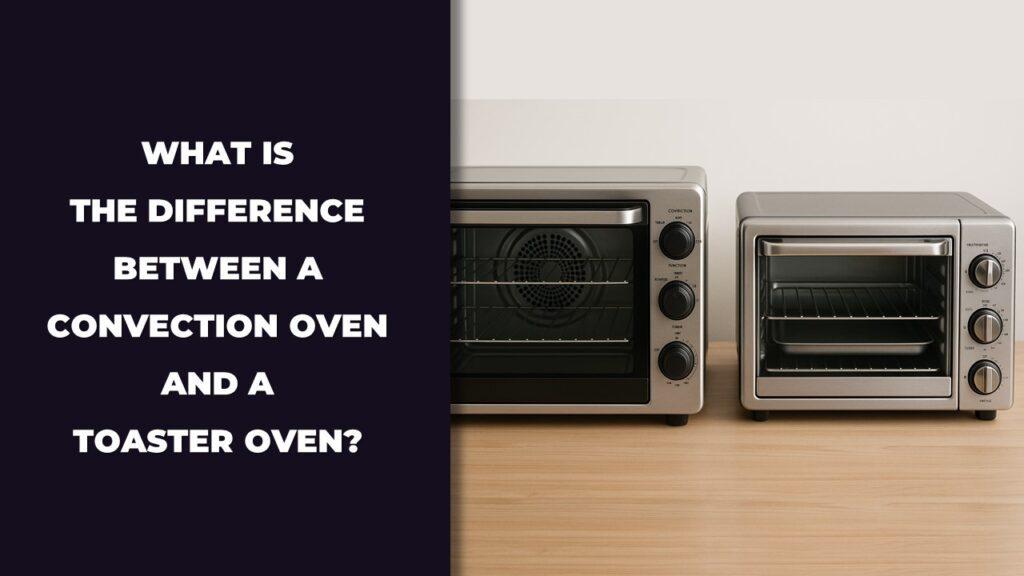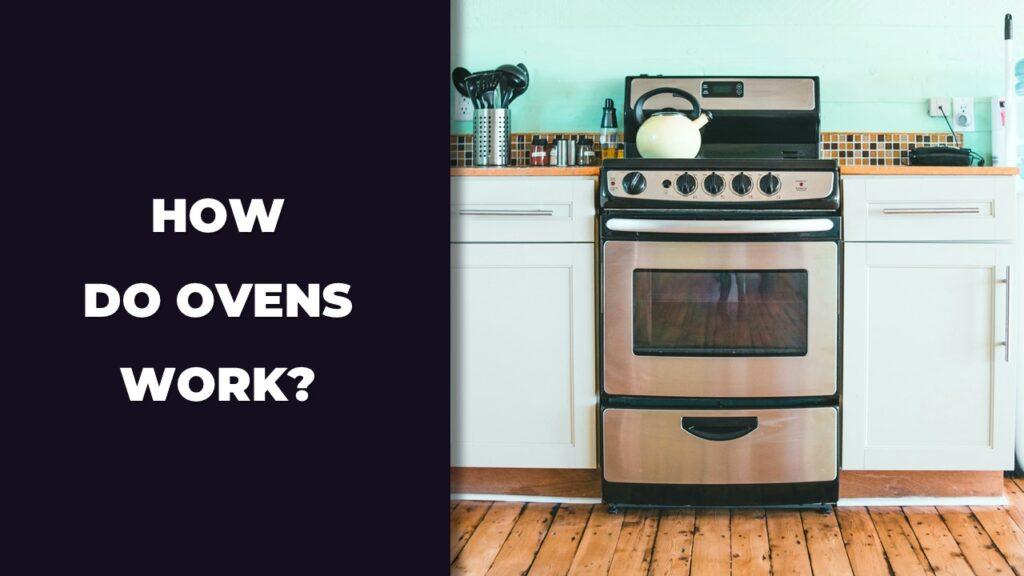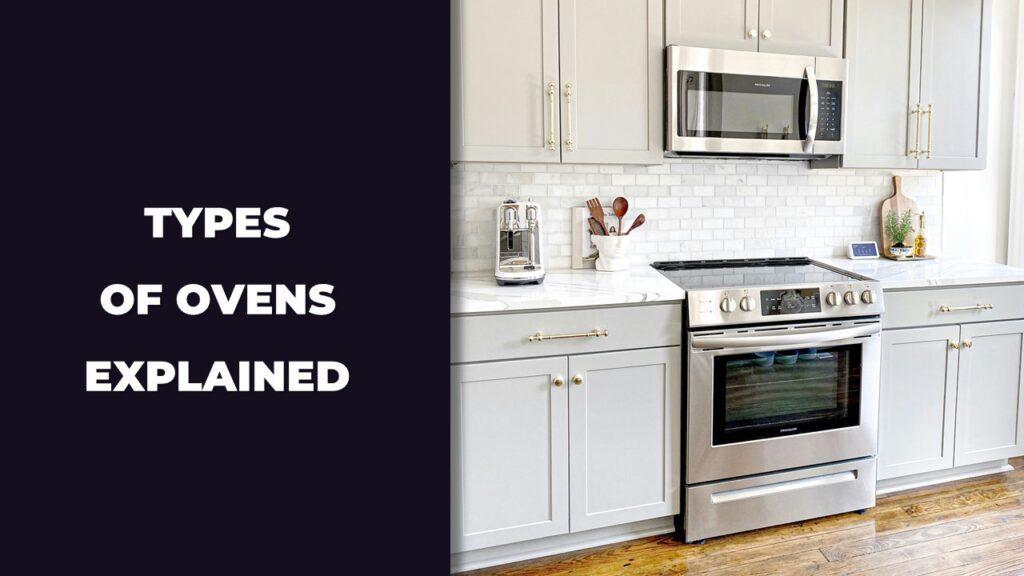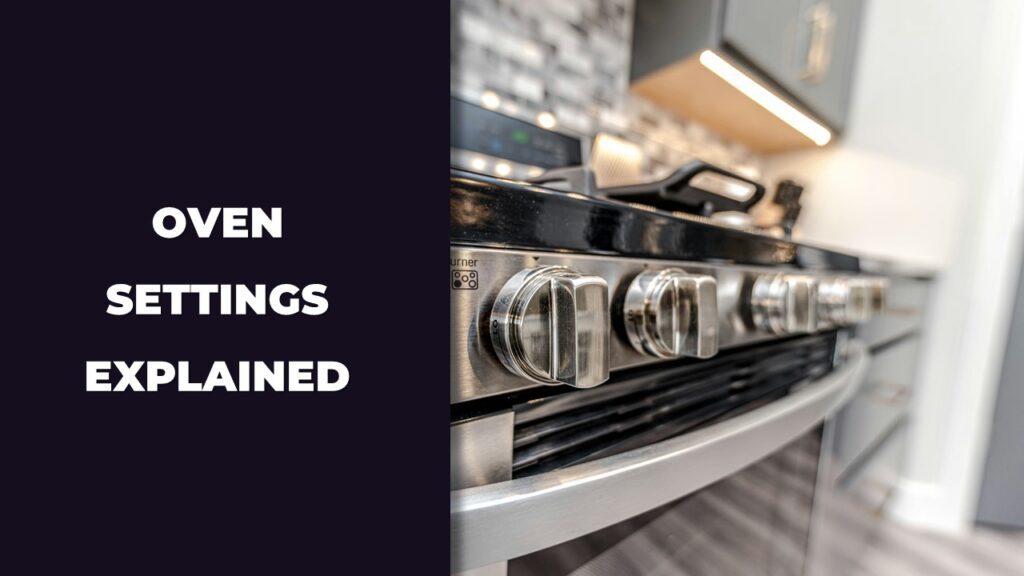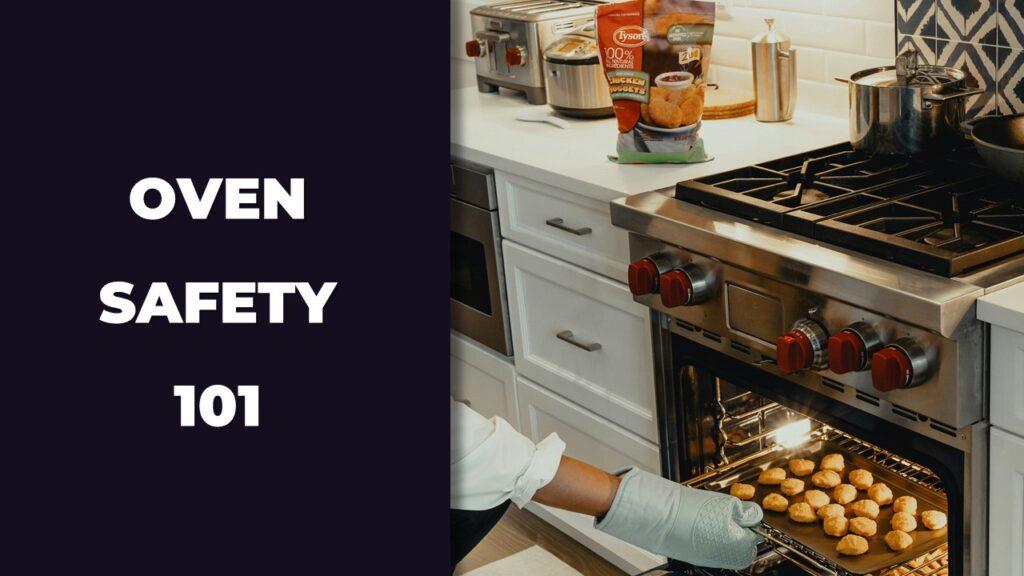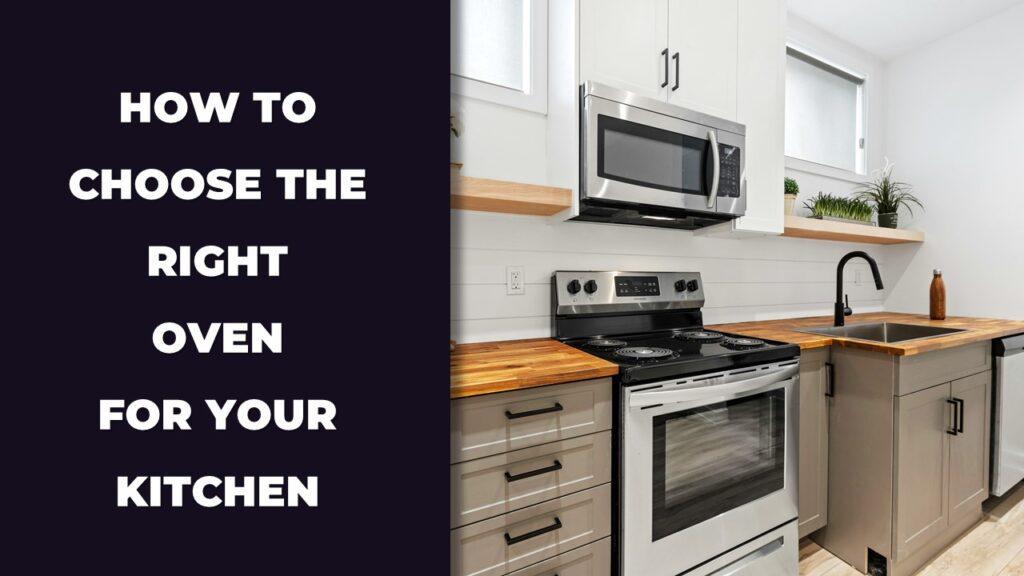
A loud oven fan usually means something’s off, like food buildup, a loose blade, or a fan motor that’s wearing out. The fan in your oven helps circulate hot air for even cooking and also cools things down after you’re done. But when it starts rattling, grinding, or humming louder than usual, it’s a sign that something inside needs attention.
In this article, we’re going to walk you through what causes a noisy oven fan, how to figure out exactly what’s wrong, and what you can safely fix yourself before calling in a repair tech. We’ll keep it simple and practical, so you know what to do and what not to ignore.
What Type Of Oven Fan Noise Are You Hearing? (Noise Diagnosis Guide)
If your oven fan is loud, the type of noise it makes can tell you exactly what’s wrong. Rattling often means something is loose. Grinding or scraping sounds usually point to blade or motor damage. A loud humming might mean the fan is off balance or straining. Buzzing or clicking could suggest electrical problems or a dirty igniter. And if the fan runs loud even after the oven is off, the cooling fan may need cleaning or repair.
Here’s how to tell the difference and what each sound means:
Rattling Or Vibrating Noise
Rattling usually comes from something loose inside the oven. It might be the fan blade wobbling on its mount or screws that have worked themselves out over time. The noise often gets worse when the oven heats up, causing metal parts to expand and shake more.
Common causes include:
- A loose or unbalanced fan blade
- Screws or bolts inside the fan housing vibrating
- Back panel or motor mount not secured tightly
- Oven racks rattling against each other during fan operation
This is one of the easier noises to fix. Check the fan blade, housing, and panels for anything that moves when it shouldn’t.
Grinding Or Scraping Sounds
A grinding or scraping sound is usually more serious. It often means the fan blade is hitting something, like the inside of the fan housing, or that the motor bearings are wearing out.
What to look for:
- A bent or warped fan blade rubbing against the metal housing
- Dirt or debris wedged between the fan and its casing
- A failing fan motor with bad bearings causing the shaft to wobble
If you hear metal-on-metal grinding, stop using the oven and inspect the fan area. Letting this go on can lead to complete motor failure.
Humming Or Whirring Noise
Most oven fans make a soft hum. But if the humming gets louder or high-pitched, it’s usually a sign that the fan is unbalanced or struggling to spin smoothly.
Possible reasons:
- Grease or grime buildup on the blades making them heavier on one side
- Loose mounting causing the fan to wobble
- Motor starting to wear out but not fully failed
Humming on its own isn’t always dangerous, but if it gets worse or happens all the time, it’s worth checking out.
Buzzing Or Clicking Noise
Buzzing can point to electrical trouble, especially if it’s paired with flickering lights or uneven fan movement. Clicking, on the other hand, may come from the oven’s igniter or control panel relays.
You might be hearing:
- A fan relay turning on and off rapidly
- A dirty or failing gas igniter trying to spark repeatedly
- Loose wiring inside the fan or behind the control panel
These sounds may not always come from the fan itself but could affect fan operation. If you hear electrical noises, unplug the oven and check for signs of heat damage or burning near wiring.
Fan Noise After Oven Is Off
It’s normal for the cooling fan to stay on for a while after cooking, especially in convection or electric ovens. But if the fan sounds unusually loud, squeaky, or runs for longer than 30 minutes, it might need a cleaning or be wearing out.
Possible issues:
- Dust or grease buildup inside the cooling fan motor
- Cooling fan bearings starting to go bad
- A sensor failure causing the fan to run longer than needed
This fan helps prevent overheating of internal parts. If it becomes too noisy, it’s worth removing the back panel to inspect the motor and clean the fan area.
Why Is Your Oven Fan So Loud? (Root Causes Explained)
A loud oven fan is usually caused by a buildup of grease, a bent or loose blade, or a worn-out fan motor. Other possible reasons include a faulty cooling fan, a misaligned panel, or a struggling circulation fan. In gas ovens, a dirty igniter can also make clicking or booming noises that sound like fan issues. Each of these problems affects how smoothly the fan runs and how much noise it makes during or after cooking.
Let’s break down the most common reasons behind the noise:
Dirty Or Greasy Fan Blades
Over time, grease, crumbs, and food particles can stick to the fan blades. When the blades aren’t clean, they spin unevenly, causing a humming or wobbling sound.
What it does:
- Adds weight to one side of the blade
- Throws the fan off balance
- Increases wear on the motor
Where it happens:
- Mostly in convection ovens that move a lot of hot air
- After roasting, baking, or greasy cooking sessions
Cleaning the blades gently with a damp cloth or soft brush can often quiet things down.
Loose Or Bent Fan Blade
If your fan blade is loose or slightly bent, it may rattle or scrape during spinning. This can sound like metal tapping or grinding against something.
Common signs:
- Loud clanking when the oven heats up
- Noise that comes and goes as the fan speed changes
- Blade visibly wobbling when turned by hand
You may need to tighten the center nut or, in some cases, replace the blade completely.
Worn-Out Fan Motor Bearings
Bearings help the fan spin smoothly. But like any moving part, they wear out over time, especially in older ovens or ones used daily.
Symptoms of worn bearings:
- Grinding, whining, or buzzing from the fan
- Fan slows down or stops briefly during use
- Smell of overheating parts
Once the bearings go bad, the motor works harder and gets louder. In most cases, the motor will need to be replaced.
Faulty Cooling Fan (Runs After Cooking Ends)
Many ovens have a separate fan that turns on after cooking to help cool the oven’s internal parts. If that fan gets dirty or worn out, it can make more noise than it should.
Common clues:
- Fan stays on longer than usual
- Loud humming or rattling after the oven is off
- Gets louder each time you use the oven
Cleaning the cooling fan area or replacing the motor can fix this. It’s often located at the back or under the oven cavity.
Misaligned Or Loose Back Panel
Sometimes the noise isn’t coming from the fan at all, but from a metal panel at the back of the oven. If the panel or screws are loose, it can vibrate every time the fan kicks on.
What happens:
- Sounds like light tapping, buzzing, or rattling
- Gets louder as the oven heats up
- May stop if you press or hold the panel
This is usually a simple fix—just tighten the screws or reposition the panel.
Failing Circulation Fan In Convection Ovens
The circulation fan helps move hot air evenly during cooking. When it starts to fail, you’ll hear it struggling to spin, especially during longer cook times.
Watch for:
- Uneven cooking results
- Fan noise that starts soft and grows louder
- Clicking or scraping while baking
This fan runs more often than the cooling fan, so it tends to wear out faster. You may need to replace the motor or blade.
Dirty Or Failing Gas Igniter (For Gas Ovens)
In gas ovens, the igniter lights the burner. If it’s dirty or worn, it may click repeatedly or create loud booming sounds as it tries to ignite.
Sounds like:
- Repeated clicking or popping
- A sudden boom when it finally lights
- Fan seems louder because of combined noises
The igniter may just need a cleaning, or it might need replacing if it’s not glowing properly.
How To Fix A Noisy Oven Fan: Step-by-Step Troubleshooting Guide
Here is the step-by-step guide to fix a noisy oven fan:
- Turn off power or shut off the gas before touching anything
- Remove the fan cover or back panel carefully
- Clean off any grease or debris around the fan
- Tighten loose screws or brackets holding the blade or motor
- Add a small amount of lubricant if the motor allows it
- Replace damaged parts if cleaning and tightening don’t help
- Put everything back together and test the oven quietly
Even if you’re not a repair expert, many of these steps are simple and safe to do at home. The key is working slowly, following your oven’s manual, and always making sure the power is off before you touch the fan.
Step 1: Disconnect Power Or Shut Off Gas Line
Before doing anything, safety comes first. Unplug your electric oven from the wall or flip the circuit breaker. If you’re using a gas oven, turn off the gas valve to stop the flow.
This step is non-negotiable. You’ll be working near moving parts and possibly exposed wires. Skipping this could lead to injury or damage to your oven.
Step 2: Remove Fan Guard Or Back Panel Safely
Next, locate the fan. Most fans are behind a metal guard inside the oven or behind the rear panel. You may need a screwdriver to remove screws holding it in place.
Be gentle—some oven parts are sharp or easy to bend. Place screws and small parts in a cup or tray so nothing gets lost during the fix.
Step 3: Clean The Fan Blade And Motor Area
With the panel off, check the fan blades. If you see baked-on grease or sticky crumbs, clean them off using a damp cloth or soft brush.
Don’t spray cleaner directly into the motor. If the blades are greasy or unbalanced, the fan will rattle and strain. Cleaning might be all it takes to quiet things down.
Step 4: Check For Loose Screws, Blade, Or Mounts
Now gently wiggle the fan blade. If it moves too much, there’s a loose screw or bolt. Use a screwdriver or wrench to tighten anything that’s not secure.
Also check if the blade looks bent or off-center. If it wobbles when spun by hand, it may need to be straightened or replaced.
Step 5: Lubricate The Fan Motor (If Design Allows)
Some fan motors have a small hole where you can apply a few drops of high-temperature lubricant. This helps the motor spin more smoothly and quietly.
Do not soak the motor or use general-purpose oil unless your oven manual specifically says it’s okay. Too much oil can attract dust or cause electrical issues.
Step 6: Replace Fan Blade Or Motor If Damaged
If the blade is cracked, bent beyond repair, or the motor still makes grinding noises after cleaning, it’s time for a replacement.
You’ll need the model number of your oven to get the right part. Many fans are sold as a set with motor and blade together. If you’re unsure, take a photo and check with a parts supplier or repair shop.
Step 7: Reassemble And Test The Oven Quietly
Once everything’s clean, tight, and working, screw the fan guard or panel back in place. Restore power or turn the gas back on.
Now run the oven and listen. The fan should be much quieter. Try using different modes like bake, roast, and convection to see if the noise is gone during all operations.
When Should You Call A Technician?
If your oven fan is still loud after cleaning and tightening, or if you hear electrical buzzing or smell something burning, it’s time to call a technician. Certain issues—like a faulty motor, control board problems, or damaged wiring—are better handled by a trained repair expert to avoid making things worse.
If you’re unsure, here are clear signs it’s better to call for help:
- The fan keeps getting louder: Even after basic cleaning and tightening, the noise keeps coming back or gets worse.
- You smell burning or melted plastic: This could mean an overheating motor or damaged insulation near wires.
- Electrical buzzing or sparking sounds: Could point to relay issues, control board failure, or wiring problems.
- Fan blade won’t spin freely: A seized or jammed fan motor needs professional servicing or replacement.
- Your oven is under warranty: Opening the back or attempting repairs yourself might void the warranty.
- You don’t feel confident handling wires or gas parts: When in doubt, stay safe and let a pro handle it.
How To Prevent Loud Oven Fan Noises
You can prevent loud oven fan noises by cleaning regularly, checking for loose screws, and using the oven gently. Routine care helps parts last longer and stops small issues from turning into big, noisy problems.
Here are some easy ways to keep your oven fan quiet over time:
- Clean the fan area regularly: Wipe down the inside of your oven and around the fan after heavy cooking sessions. This keeps grease from building up and weighing down the blades.
- Tighten loose screws once in a while: Give your oven a quick check during monthly kitchen cleanups. Tightening fan mount screws and panel bolts can stop future rattling.
- Don’t slam the oven door: A hard close can shake the fan loose or misalign panels, especially over time.
- Place the oven on level ground: A tilted oven can stress the fan bearings and lead to early wear.
- Run a self-clean cycle occasionally (if supported): This helps burn off hidden grime around the fan, but only use this feature if your manual recommends it.
- Use the right cook settings: Running convection when you don’t need it adds wear to the fan. Only use it when even heat distribution matters.
Oven Fan Still Loud? What Not To Do
If your oven fan is still loud after cleaning and tightening, don’t keep using it as if nothing’s wrong. Ignoring the noise can lead to bigger problems like motor failure, electrical damage, or even uneven cooking. And while it’s tempting to poke around inside and hope for the best, some actions can actually do more harm than good.
Avoid spraying water or cleaning sprays directly into the fan or motor area. Liquid can damage electrical components or short out the fan. Always clean with a damp cloth and keep moisture away from the motor itself.
Don’t try to bend a warped fan blade back into shape if it’s badly damaged. This can unbalance the fan or cause it to crack further, leading to even louder noise or a complete breakdown.
And lastly, never guess when it comes to wires, sensors, or gas lines. If you don’t know exactly what you’re doing, it’s safer (and cheaper in the long run) to call a technician.
Conclusion
A loud oven fan might seem like a small issue, but it’s often the oven’s way of telling you something’s not right. Whether it’s a dirty fan blade, loose screw, or worn-out motor, small problems can quickly turn into bigger ones if ignored.
Taking time to check the fan, clean the area, and tighten what you can usually makes a big difference. And if that doesn’t fix it, calling in a repair tech is worth it, especially if you want your oven to last.
Fixing or replacing a noisy oven fan not only makes cooking quieter but also helps your appliance work more efficiently and safely. Don’t wait for a full breakdown to take action.
Related FAQs
Why Is My Oven Fan Loud All Of A Sudden?
A sudden loud fan usually means something came loose, like a blade or screw, or debris got caught in the fan area.
Is A Noisy Oven Fan Dangerous?
Yes, if the noise is from a worn motor, electrical buzzing, or a burning smell. These can lead to safety hazards if left unchecked.
How Do I Stop My Convection Oven From Making Noise?
Clean the fan blades, check for loose screws, and inspect the motor. Replace any damaged parts if the noise doesn’t stop.
How Long Should An Oven Fan Last?
Most oven fans last 8 to 12 years, depending on use and maintenance. Dirty fans or heavy use can shorten that lifespan.
Can I Use My Oven If The Fan Is Making Noise?
You can, but it’s not recommended. Using a noisy fan repeatedly can damage the motor and affect how evenly the oven cooks.

Max Fletcher is a self-taught electrician-turned-baker who combines technical know-how with a love for baking to help readers get the most from their ovens. Drawing on years of electrical experience and hands-on kitchen testing, he shares practical guides and reviews on oven performance, safety, and baking results, all with the heart of a family man who believes great food starts with understanding your tools.

